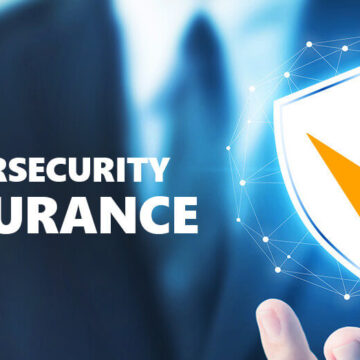As businesses and individuals rely more and more on technology, the importance of cyber security grows. This means that the demand for cyber security analysts has also grown significantly, as they play a vital role in safeguarding sensitive information and defending against cyber threats. However, with increased demand comes increased competition, making it essential to stand out as a strong candidate through your CV and job interview performance. This article offers guidance on what to include in a cyber security analyst CV, some common interview questions, and how to prepare for a career in the field.
Types of cyber security interview questions
Once your CV has caught the attention of a potential employer, the next step in the recruitment process is typically a job interview. In a cyber security/analyst job interview, you can expect to be asked a range of technical and behavioral questions. Here are some examples of common questions you might encounter.
Technical questions related to cyber security tools and methodologies
You may be asked about your knowledge of specific tools or technologies commonly used in the field, such as firewalls, antivirus software or intrusion detection systems. You may also be asked about different methodologies used for vulnerability scanning, penetration testing and threat modeling.
Behavioral questions
In addition to technical questions, you can expect to be asked about your problem-solving abilities, communication skills and experience of working in a team. For example, you may be asked to describe a time when you had to troubleshoot a complex issue or explain a technical concept to a non-technical person.
Questions related to the company and its approach to cyber security
To demonstrate your interest and knowledge of the company, you should also be prepared to answer questions about its approach to cyber security. This may include questions about the company’s current security measures, any recent security incidents it has experienced, or its plans for improving its cyber security posture in the future.
By preparing for these types of questions ahead of time, you can demonstrate your expertise and suitability for the role and increase your chances of securing the job.
What to include in a cyber security/analyst CV
When applying for a cyber security or analyst role, it’s important to have a strong CV that emphasizes your candidacy. Here are some elements to include.
Relevant qualifications and certifications
Highlight any relevant degrees, diplomas or certificates relating to cyber security or IT. This could include certifications such as Certified Information Systems Security Professional (CISSP), CompTIA Security+ or Certified Ethical Hacker (CEH). These certifications serve as a demonstration of the candidate’s proficiency in safeguarding computer systems, networks and data against possible risks.
The SBU online cybersecurity master’s program gives you global cyber security skills and leadership training. Achieving this certification also serves as a testimony of your dedication to the profession and your eagerness to stay up to date on the newest advancements and technologies in the continually changing cyber security industry.
Experience and skills related to cyber security
Include details of your relevant experience in the field, whether it was gained through previous employment, internships or personal projects. Highlight your technical skills, particularly in areas such as firewalls, intrusion detection and prevention systems, and security information and event management tools. Demonstrating how you’ve used these skills in previous roles or projects can help show potential employers your expertise in the field. Additionally, it’s important to mention any certifications or training you’ve completed in cyber security. By showcasing your experience and expertise, you can help make your cyber security CV stand out to potential employers.
Examples of completed projects and achievements
Provide examples of projects you’ve worked on in the field. This can include highlighting any achievements you’ve accomplished, such as reducing the number of security incidents or vulnerabilities in a system. By showcasing your problem-solving abilities and technical skills in these projects, you can demonstrate your value to potential employers. Make sure to provide detailed explanations of your contributions and outcomes, as well as any tools or methodologies you used. Additionally, highlighting any awards or recognition you’ve received for your cyber security work can further emphasize your expertise and accomplishments in the field. Ultimately, providing concrete examples of your cyber security projects and achievements can help set you apart from other candidates and make a compelling case for why you would be an asset to any cyber security team.
Soft skills and personal attributes
While technical skills are essential in cyber security, it’s equally important to showcase your soft skills in your CV. Cyber security professionals must be detail-oriented, analytical and able to work well under pressure. Make sure to emphasize these and other relevant soft skills, such as problem-solving, communication and teamwork. Your ability to collaborate effectively with other team members and stakeholders is especially crucial in cyber security, where coordination and communication are key to success. Additionally, highlighting examples of how you’ve leveraged your soft skills in previous roles or projects can help demonstrate your ability to handle complex cyber security challenges. Overall, showcasing your soft skills in addition to your technical skills can help demonstrate your value as a well-rounded cyber security professional.
How to prepare for a career in cyber security
Below are some steps you can take to prepare for a cyber security career and to enhance your skills.
Research the industry
To remain up to date on the most recent advancements in the realm of cyber security, it is vital to conduct thorough research on the industry and monitor contemporary trends. You can achieve this by reading industry-specific publications, engaging in conferences and seminars, and joining online forums. Being well-informed will aid in the identification of potential risks and possibilities within the sector.
Develop technical skills
Cyber security professionals must possess a solid technical groundwork in domains such as networking, programming and operating systems. You may want to take courses or obtain certifications such as CompTIA Security+ or CISSP to acquire pertinent technical know-how and the abilities that are essential for excelling in a cyber security position. These educational programs can equip individuals with the requisite proficiency to excel in their role in the cyber security arena.
Gain experience
One way to acquire practical experience in the cyber security domain is by interning with a company or volunteering with a non-profit organization that concentrates on cyber security. This approach can help to cultivate practical abilities and create valuable networks within the industry. Seek out opportunities that enable you to work with diverse tools and technologies and collaborate with other professionals in the cyber security field.
Cyber security interview questions with example answers
To help you develop some effective responses in preparation for your interview, here are some common cyber security interview questions and example answers.
What’s your experience with incident response planning and execution?
Professionals in the field of cyber security require expertise in both incident response planning and execution, as it’s an indispensable aspect of cyber safety. An incident response plan is a written procedure describing the necessary actions to take in case of a cyber security event, such as a data breach or malware attack.
Example: “I have several years of experience in incident response planning and execution. In my current role, I oversee the development of our organization’s incident response plan and coordinate the response to any security incidents that occur.
“To develop our incident response plan, I worked closely with stakeholders from across the organization and conducted extensive research on industry best practices and regulatory requirements. I have also been involved in responding to several security incidents, including malware infections and phishing attacks. In these cases, I worked with our IT team to identify the root cause of the incident, contain the threat, and remediate any damage caused. I also communicated regularly with key stakeholders to ensure that they were informed of the incident and our response efforts.”
How do you stay up to date with the latest cyber security trends?
Cyber security professionals need to stay up to date with the latest threats and trends to effectively protect their organization’s assets. It’s important to be aware of emerging threats, new attack vectors, and the latest security technologies and best practices.
Example: “To stay up to date with the latest cyber security threats and trends, I regularly read industry publications and attend security conferences and events. I also participate in online forums and communities, where I can collaborate with other security professionals and stay informed of the latest developments.
“I also conduct regular security assessments and penetration tests to identify potential vulnerabilities and threats within our organization. This helps me to stay ahead of emerging threats and ensure that our security measures are effective and up to date.”
What’s your experience with vulnerability assessment tools?
Vulnerability assessment tools are important for identifying potential vulnerabilities in an organization’s systems and applications. Cyber security professionals need to have experience with these tools to effectively assess and mitigate potential security risks.
Example: “I have extensive experience working with vulnerability assessment tools such as Nessus, Qualys and OpenVAS. These tools help me to identify potential vulnerabilities in our organization’s systems and applications, and provide recommendations for mitigating these risks.
“I’m also familiar with other vulnerability assessment tools, such as web application scanners and database vulnerability scanners. These tools can help to identify vulnerabilities in specific areas of an organization’s infrastructure, such as web applications or databases.”
What’s your experience with security incident investigations?
Investigating security incidents is a critical aspect of cyber security, as it helps organizations understand the scope and impact of a security breach and take steps to prevent similar incidents in the future. Cyber security professionals need to have experience with incident investigations to effectively respond to security incidents and mitigate potential risks.
Example: “I’ve conducted several security incident investigations, including malware infections, phishing attacks and unauthorized access incidents. These investigations involved collecting and analyzing evidence, interviewing witnesses, and collaborating with other security professionals to identify the root cause of the incident.
“I’m also familiar with the incident response process, including the importance of documenting the investigation process and preserving evidence for potential legal proceedings. In addition, I’m familiar with regulatory requirements related to incident reporting and data breach notification.”
How do you prioritize security threats within an organization?
Prioritizing security threats within an organization is crucial in ensuring that the most critical threats are addressed first, thereby reducing the risk of a security breach. Cyber security professionals must prioritize security threats based on several factors, including the likelihood of the threat occurring, the potential impact of the threat, and the vulnerability of the organization’s assets to the threat.
Example: “To determine the likelihood of a threat, I consider factors such as the threat actor’s capability and motivation, the organization’s exposure to the threat, and the current threat landscape. I also assess the potential impact of the threat by evaluating the potential harm to the organization’s reputation, financial loss and operational disruptions.
“I also consider the vulnerability of the organization’s assets to the threat by analyzing the organization’s security controls and their effectiveness in preventing or mitigating the threat. Based on this assessment, I prioritize the security threats and develop a plan to address them accordingly, focusing on the most critical threats first to minimize the risk of a security breach.”
Skills to develop for a career in cyber security
Below are some of the most important skills that professionals rely on in the field of cyber security.
Technical skills
Technical skills are fundamental in the cyber security industry. These abilities are crucial for executing day-to-day duties, including safeguarding computer networks and systems from cyber-attacks. Some of the technical skills required in cyber security include network security, programming and operating systems. Network security is vital for securing computer networks from potential breaches, while programming is essential for developing and designing security software. A thorough understanding of operating systems is also vital in protecting systems from vulnerabilities and threats.
Analytical skills
These skills enable professionals to analyze and interpret data to detect potential threats and vulnerabilities in computer networks and systems. With the increasing number of cyber threats, analytical skills have become more important than ever. Cyber security professionals with strong analytical skills can analyze large sets of data to identify threats and develop strategies to protect systems.
Communication
Communication skills are also vital for a successful career in cyber security. Effective communication skills are necessary for explaining complex technical issues to non-technical stakeholders. Cyber security professionals must be able to explain cyber threats and their implications in simple terms to people who may not have technical expertise. These skills are also essential for collaborating with other professionals in the industry.
Attention to detail
Cyber security professionals must pay attention to every detail to identify vulnerabilities and prevent breaches. A single mistake or oversight can leave systems vulnerable to cyber-attacks. Thus, attention to detail is a crucial skill that cyber security professionals must possess.
Conclusion
Hopefully, you found this career guidance useful. If you are considering pursuing a career in cyber security, look into enrolling on a course such as the SBU online cyber master’s. Good luck in your future career!
















